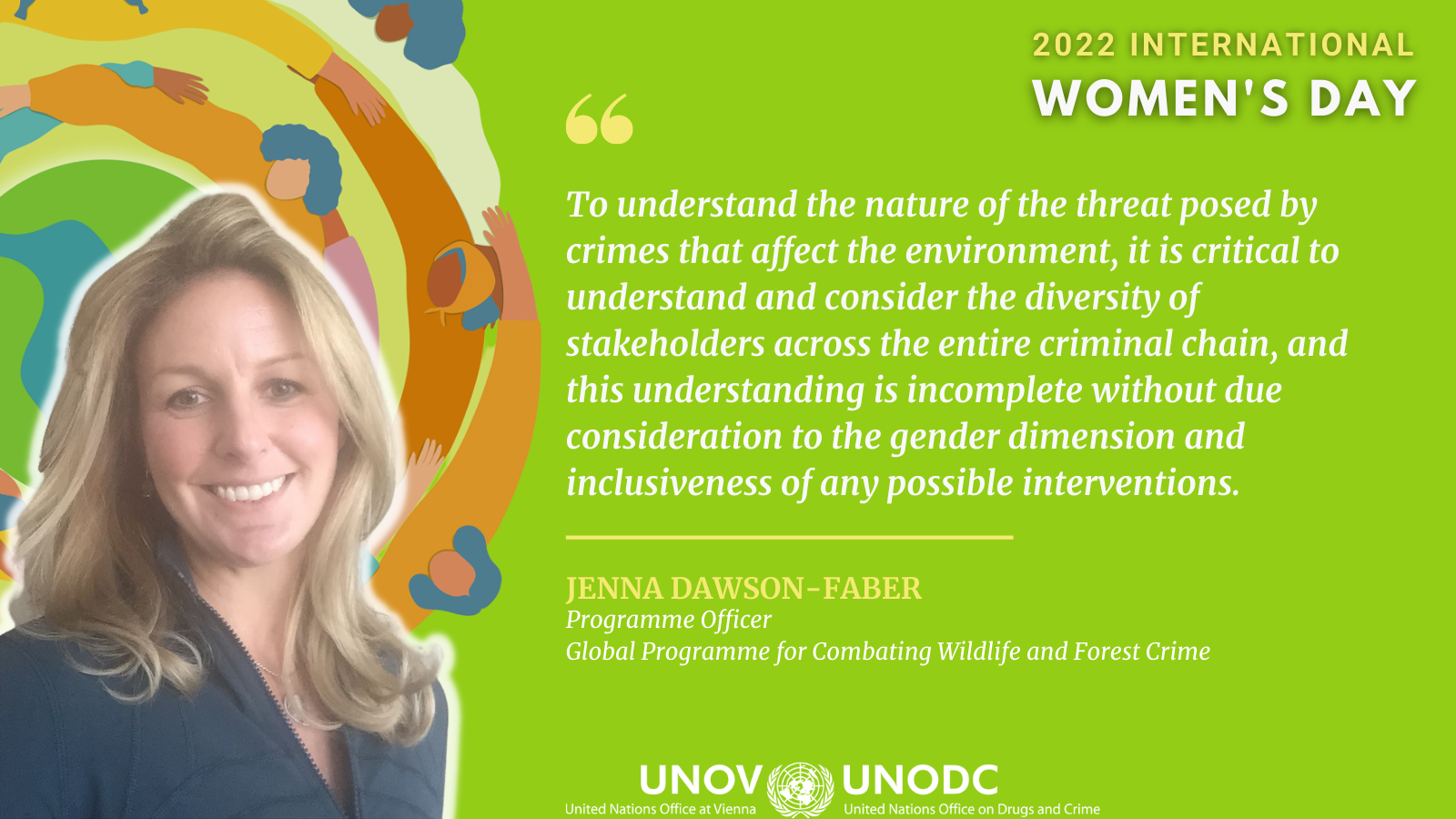


(c) UNODC
To date, there has been very little scientific research conducted on the role of gender in wildlife trafficking. While there is anecdotal information about the role of women as offenders, and a handful of high-profile prevention mechanisms like the all-female ranger patrols in Southern Africa, there is a dearth of data about the roles of women and men in perpetrating, preventing and/or combating wildlife and forest crime. UNODC is now undertaking research in various wildlife trafficking hotspots in Latin America to derive a better picture of the roles that men and women play at various stages of the trafficking chain to better design and implement targeted programming.
Beyond women as offenders, anecdotal information indicates that women play a crucial role in the prevention of and response to wildlife and forest crime, as well as in promoting sustainable development. This is bolstered by decades of criminology research showing that women in law enforcement units can help de-escalate crime problems, a more measured and appropriate use of force, fewer civilian complaints, all of which are critical to better conserve wildlife in partnerships with the communities that live near it. Identifying key roles of women as solutions-makers, and harnessing their skills and knowledge to share best practices, can not only empower other women and girls to take action to prevent wildlife and forest crime, but raise awareness of women-centred prevention and response initiatives to inspire change.

(c) UN Women
Marked annually on March 8th, International Women's Day celebrates women's achievements and raises awareness about women's equality. UN Women announced this year`s theme as, “Gender equality today for a sustainable tomorrow.” The theme recognizes the contribution of women and girls around the world, who are leading the charge on climate change adaptation, mitigation, and response, to build a more sustainable future for all. It is aligned with the priority theme for the upcoming 66th Commission on the Status of Women (CSW66): “Achieving gender equality and the empowerment of all women and girls in the context of climate change, environmental and disaster risk reduction policies and programmes.”